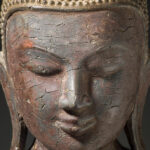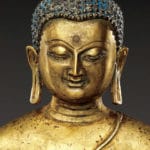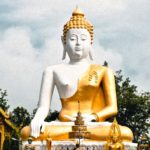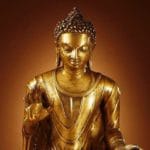Melvin McLeod breaks down the Buddha’s four noble truths and argues it’s not only the ultimate self-help formula, but the best guide to helping others and benefiting the world.
Who Was the Buddha?
“Buddha” means “one who is awake.” The Buddha who lived 2,600 years ago was not a god. He was an ordinary person, named Siddhartha Gautama.
The Path of Joy and Liberation
The Buddha’s four noble truths include the truth that the eightfold path is a way out of suffering. It’s not just the path to happiness, says Sister True Dedication. It’s happiness itself.
The Four Noble Truths
Buddhist teacher and scholar Jan Willis on the Buddha’s central teaching — his diagnosis and cure for suffering.
This Is the Origin, This Is the Cessation
Teachings on the Four Noble Truths from Handful of Leaves, Thanissaro Bhikkhu’s new translations of selected suttas from the Pali Canon.
What Is Suffering?
Nine teachers explain what suffering is, how we feel it, and why it isn’t a condemnation — it’s a joyous opportunity.
What do Americans know about Buddhism? “Not much,” say most.
One-fifth of survey respondents incorrectly said that Buddhists believe in an “immortal soul,” and most said they don’t personally know a Buddhist.
Illness and the Buddha’s Prescription
The Buddha knew that illness is a natural part of human life. Toni Bernhard shares how the first noble truth has helped her gracefully accept being chronically ill.
The Message of the Buddha’s Four Noble Truths
The message of Buddha’s Four Noble Truths is that paying attention and seeing clearly lead to behaving impeccably in every moment on behalf of all beings.
Deer to the Heart
Even if you don’t think much about them, they’re always present. Andrea Miller reexamines something we all might have missed in the meaning of the quiet, watchful deer.










